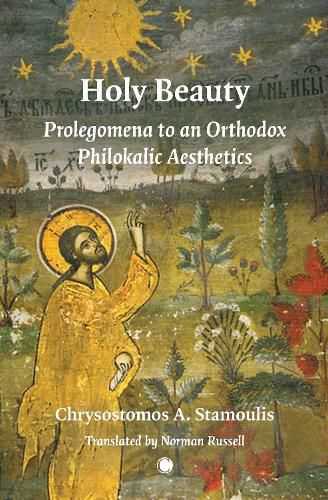Readings Newsletter
Become a Readings Member to make your shopping experience even easier.
Sign in or sign up for free!
You’re not far away from qualifying for FREE standard shipping within Australia
You’ve qualified for FREE standard shipping within Australia
The cart is loading…






The philosophical and theological study of aesthetics has a long and rich history, stretching back to Platos identification of ultimate goodness and beauty, together representing the eternal form. Recent trends in aesthetic theory, however, characterised by a focus on the beautiful at the expense of the good, have made it an object of suspicion in the Orthodox Church. In its place, Greek theologians have sought to emphasise philokalia as a truer theological discipline.
Seeking to reverse this trend, Chrysostomos Stamoulis brings into conversation a plethora of voices, from Church fathers to contemporary poets, and from a Marxist political theorist to a literary critic. Out of this dialogue, Stamoulis builds a model for the re-appropriation of Orthodoxys patristic and Byzantine past that is no longer defined in antithesis to the Western present. The openness he proposes allows us to perceive afresh the world shot through with divinity, if only we can lift our gaze to see it. Dismantling the false dichotomy, philokalia or aesthetics, is the first step.
$9.00 standard shipping within Australia
FREE standard shipping within Australia for orders over $100.00
Express & International shipping calculated at checkout
The philosophical and theological study of aesthetics has a long and rich history, stretching back to Platos identification of ultimate goodness and beauty, together representing the eternal form. Recent trends in aesthetic theory, however, characterised by a focus on the beautiful at the expense of the good, have made it an object of suspicion in the Orthodox Church. In its place, Greek theologians have sought to emphasise philokalia as a truer theological discipline.
Seeking to reverse this trend, Chrysostomos Stamoulis brings into conversation a plethora of voices, from Church fathers to contemporary poets, and from a Marxist political theorist to a literary critic. Out of this dialogue, Stamoulis builds a model for the re-appropriation of Orthodoxys patristic and Byzantine past that is no longer defined in antithesis to the Western present. The openness he proposes allows us to perceive afresh the world shot through with divinity, if only we can lift our gaze to see it. Dismantling the false dichotomy, philokalia or aesthetics, is the first step.